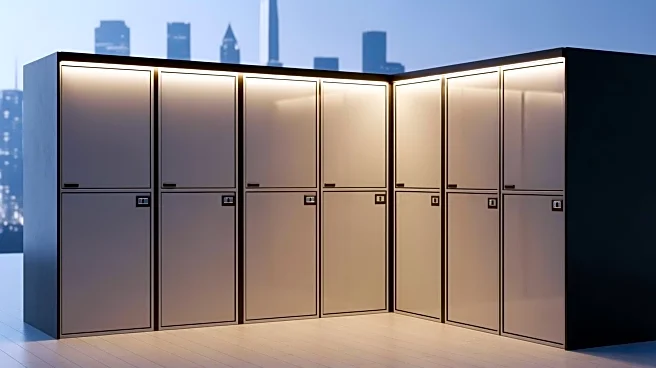What's Happening?
The U.S. self-storage market is anticipated to grow significantly, with projections indicating an increase from USD 45.41 billion in 2025 to USD 57.53 billion by 2030, according to Mordor Intelligence. This growth is driven by several factors, including
urban population expansion, reduced living spaces, and the burgeoning e-commerce sector, which necessitates micro-fulfillment hubs. The market is also seeing a rise in the adoption of climate-controlled units and the adaptive reuse of vacant retail and office buildings. Digital booking platforms are contributing to the market's structural resilience and pricing power, making self-storage a viable option for both personal and business needs.
Why It's Important?
The expansion of the self-storage market in the U.S. reflects broader economic and societal trends, such as urbanization and the shift towards e-commerce. As living spaces shrink, the demand for storage solutions increases, providing opportunities for investors and businesses in the real estate and logistics sectors. The growth of climate-controlled units and digital platforms indicates a shift towards more sophisticated and user-friendly storage solutions, which could enhance customer satisfaction and operational efficiency. This market growth could lead to increased investment in infrastructure and technology, benefiting stakeholders across the industry.
What's Next?
The U.S. self-storage market is likely to continue evolving with technological advancements and changing consumer preferences. Stakeholders may focus on expanding digital booking capabilities and enhancing climate-controlled storage options to meet diverse needs. As urbanization progresses, the demand for adaptive reuse of existing structures for storage purposes may increase, offering new opportunities for real estate developers. Additionally, the integration of e-commerce logistics with self-storage solutions could further drive market growth, necessitating strategic partnerships and innovations in storage management.
Beyond the Headlines
The growth of the self-storage market may have implications for urban planning and environmental sustainability. As more buildings are repurposed for storage, cities might need to consider zoning regulations and the environmental impact of increased storage facilities. The rise of climate-controlled units also highlights the importance of energy efficiency and sustainable practices in the industry. Long-term, the market's expansion could influence consumer behavior, encouraging more efficient use of living spaces and promoting minimalism.

















